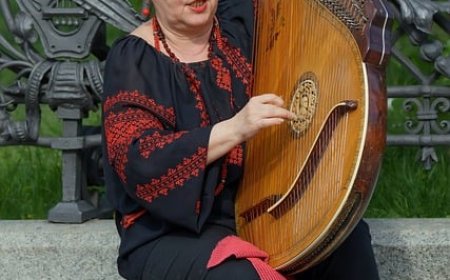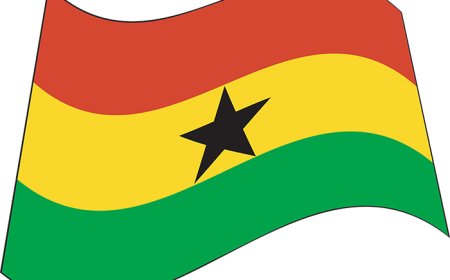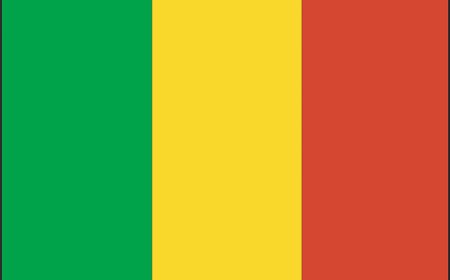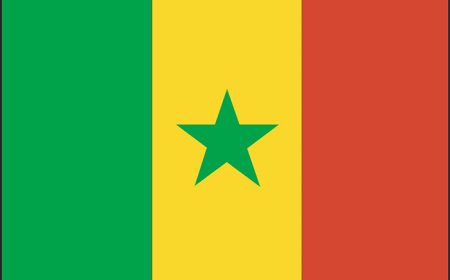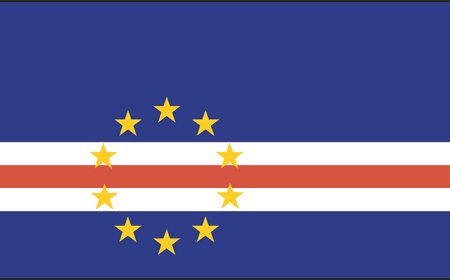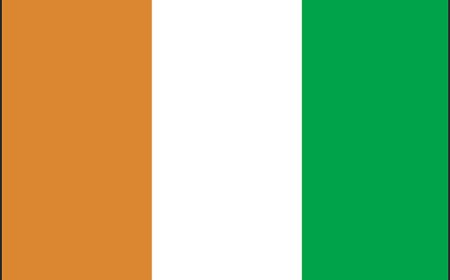Nigeria for Students: Geography, Culture, and History of Africa’s Most Populous Nation
Discover the geography, people, history, and culture of Nigeria in this student-friendly article. Includes vocabulary, 8-question quiz, and aligned national standards
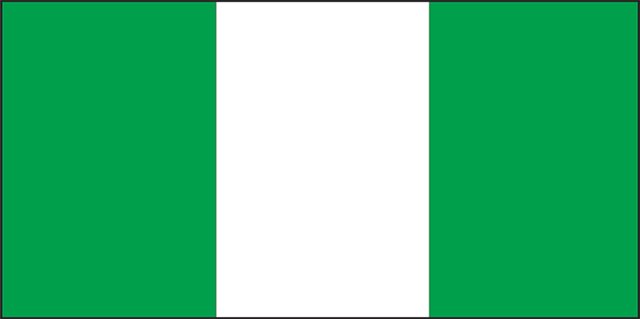
Nigeria is the most populous country in Africa, home to over 200 million people. It’s a country of immense diversity, natural beauty, and cultural energy. Known as the “Giant of Africa,” Nigeria leads the continent in music, film, business, and sports.
From its ancient kingdoms to its booming modern cities like Lagos and Abuja, Nigeria is a nation where history meets innovation, and where over 250 ethnic groups shape a truly colorful national identity.
🗺️ Geography and Environment
Nigeria is located in West Africa, bordered by Benin, Niger, Chad, and Cameroon, with a long coastline along the Atlantic Ocean’s Gulf of Guinea. It covers about 923,000 square kilometers (356,000 square miles).
Nigeria’s geography is highly varied:
In the north, dry plains and the edge of the Sahel meet the Sahara Desert.
In the central region, hills and plateaus dominate.
In the south, lush rainforests, rivers, and mangrove swamps spread out to the ocean.
The Niger River, which gives the country its name, and the Benue River are Nigeria’s main rivers. The Niger Delta, one of the largest in the world, is rich in oil and biodiversity, but also faces environmental challenges.
Nigeria’s climate ranges from arid in the north to tropical in the south, supporting a wide range of plant and animal life, including monkeys, crocodiles, antelope, hippos, and hundreds of bird species.
🏛️ Government, Language, and Population
Nigeria is a federal republic, with a president elected by the people. It has 36 states and a capital territory. The capital is Abuja, chosen for its central location. However, the largest city is Lagos, a coastal megacity known for its energy, population, and creativity.
Nigeria’s population is over 200 million, making it the most populous country in Africa and the seventh-largest in the world. The population is incredibly diverse, with over 250 ethnic groups and more than 500 languages spoken.
The three largest ethnic groups are:
Hausa-Fulani (mostly in the north)
Yoruba (in the southwest)
Igbo (in the southeast)
English is the official language, but local languages such as Yoruba, Hausa, Igbo, and Pidgin English are widely spoken.
Most Nigerians are Muslim (mostly in the north) or Christian (mostly in the south). Some people still follow traditional African religions, especially in rural areas.
The currency is the Nigerian naira (₦ or NGN).
🎭 Culture and Daily Life
Nigeria is a center for African culture, known for its vibrant fashion, food, music, storytelling, and film industry. The country’s movie industry, called Nollywood, is one of the largest in the world, producing thousands of films every year.
Nigerian music includes styles like Afrobeats, highlife, juju, and Fuji. Famous artists like Burna Boy, Wizkid, and Fela Kuti have brought Nigerian sounds to global audiences. Traditional instruments include talking drums, shekeres, xylophones, and koras.
Daily life varies between city and rural life. In cities, people work in offices, markets, schools, and creative industries. In rural areas, many people farm, herd animals, or fish.
Nigerian food is flavorful and spicy, often centered around:
Jollof rice
Fufu (a soft dough served with soup)
Egusi soup (made with ground melon seeds)
Suya (spiced grilled meat)
Family life is very important, and elders are highly respected. Festivals, weddings, and naming ceremonies are colorful, musical, and full of dancing.
📜 History: Kingdoms, Colonization, and Independence
Nigeria’s land has been home to great civilizations for centuries. Ancient kingdoms and empires include:
The Nok Civilization, known for early ironwork and sculpture
The Yoruba Kingdoms, such as Ife and Oyo, famous for their art and governance
The Hausa city-states and Kanem-Bornu Empire in the north
The Benin Empire, known for its bronze art and advanced city planning
In the 1800s, British colonists began controlling parts of Nigeria. By 1914, the regions were merged into a single colony under British rule.
Nigeria gained independence in 1960, becoming a republic in 1963. The country has experienced military coups, a civil war, and democratic elections. Today, it is a leading force in African politics, business, and technology, though it continues to face challenges like corruption, inequality, and terrorism in the northeast.
💰 Economy and Resources
Nigeria has one of the largest economies in Africa, with strengths in:
Oil and gas (the main exports)
Agriculture (cassava, yams, cocoa, peanuts, maize)
Services and technology
Oil from the Niger Delta brings in money, but over-dependence on oil and poor infrastructure have created challenges.
Nigeria also produces films, music, fashion, and digital innovations, especially in cities like Lagos, Abuja, and Kano.
Many Nigerians work as farmers, traders, tailors, teachers, or entrepreneurs, and the country has a growing young population full of energy and ideas.
🌿 Wildlife and Natural Beauty
Nigeria’s landscapes include:
The Obudu Plateau and Mambilla Highlands
The Zuma Rock near Abuja
The Niger River and its delta
National parks such as Yankari Game Reserve and Gashaka-Gumti
Wildlife includes elephants, baboons, crocodiles, hippos, and many birds and butterflies. However, deforestation, pollution, and urban sprawl are threatening many natural habitats.
Efforts are underway to improve conservation, tourism, and sustainability.
📚 Vocabulary List
Word Definition
Naira The currency of Nigeria
Jollof rice A popular West African rice dish cooked in tomato sauce
Afrobeats A modern music style blending African rhythms with pop
Nollywood Nigeria’s film industry
Niger Delta A region where the Niger River meets the ocean, rich in oil
Hausa, Yoruba, Igbo The three largest ethnic groups in Nigeria
Fufu A soft food made from pounded yam, cassava, or plantain
Independence Freedom from colonial rule
🧒 Kid-Friendly Summary
Nigeria is a big and busy country in West Africa. It has tall cities like Lagos, tasty food like jollof rice, and music that people dance to around the world. Many people speak English and local languages like Yoruba and Hausa. Nigeria has rainforests, rivers, deserts, and mountains. It used to be ruled by Britain but became free in 1960. Today, it’s full of smart, creative people making music, movies, and new inventions.
🎯 Interactive Quiz: What Do You Know About Nigeria?
1. What is the capital of Nigeria?
a) Lagos
b) Kano
c) Port Harcourt
d) Abuja
2. What are Nigeria’s three largest ethnic groups?
a) Swahili, Berber, Bantu
b) Hausa, Yoruba, Igbo
c) Zulu, Fulani, Tigray
d) Arab, Ashanti, Kikuyu
3. What river gives Nigeria its name?
a) Congo
b) Volta
c) Niger
d) Nile
4. What is Nollywood?
a) A theme park
b) A national park
c) Nigeria’s film industry
d) A fashion brand
5. What is a popular rice dish in Nigeria?
a) Sushi
b) Jollof rice
c) Couscous
d) Pasta
6. What kind of government does Nigeria have?
a) Monarchy
b) Federal Republic
c) Empire
d) Military rule only
7. What is fufu made from?
a) Tomatoes and onions
b) Rice and beans
c) Yams, cassava, or plantains
d) Fish and flour
8. When did Nigeria gain independence from Britain?
a) 1957
b) 1960
c) 1975
d) 1990






























